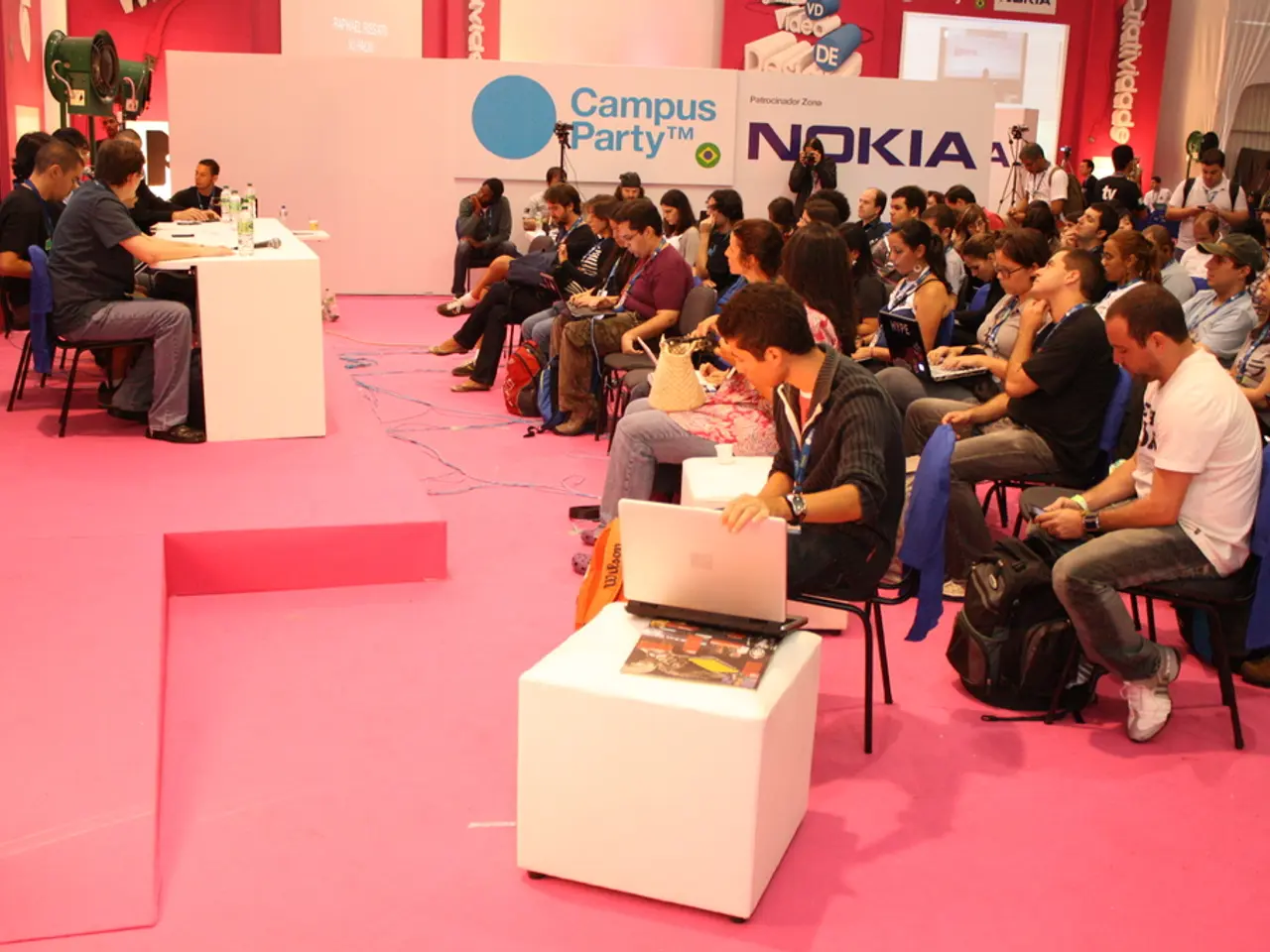Artificial Intelligence Revolution: The Impact of AI Agents on the Event Sector
In the world of event planning and management, artificial intelligence (AI) is set to revolutionize the landscape, focusing on automation, personalization, real-time optimization, and enhanced analytics. This shift aims to boost efficiency, enhance attendee experiences, and drive revenue generation.
AI tools are poised to create individualized attendee schedules based on preferences and behavior, enhancing engagement and satisfaction. By dynamically assigning internal event-planning tasks according to deadlines, availability, and workload, AI reduces the need for manual coordination.
Advanced matchmaking and traffic flow optimization are another key capability. AI predicts attendee behavior and matches them with relevant exhibitors or sessions, while balancing venue traffic across booths or areas. Real-time data analysis for decision-making empowers organizers and sponsors to make on-the-fly adjustments for better outcomes.
End-to-end event lifecycle automation is another significant advantage. AI automates abstract scoring, session grouping, post-event analytics, and marketing efforts, reducing manual work and increasing accuracy. AI also learns from past events, analyzing historical data to recommend improvements in planning and vendor selection, streamlining future event success.
Integration and scalability are crucial for successful future applications. Cohesive technology ecosystems that embed AI deeply within venue management and event workflows will be key, not just as productivity tools but as strategic components.
While the event industry has made strides in AI adoption, it is still somewhat behind other sectors. Many planners focus mainly on marketing applications rather than comprehensive AI integration in planning workflows. However, the demand for training and guidance on AI use in event planning is high, indicating growth potential.
AI agents are not just tools; they are transforming the way events operate. From personalizing discount promotions and upgrades to boost sales and increase guest satisfaction, to AI-based personalisation in ticketing that suggests suitable ticket categories and additional options based on visitor's preferences, previous bookings, and demographic characteristics, AI is making a significant impact.
Chatbots are AI agents used in the events industry to automatically answer visitor questions about the event, its program, catering, technical assistance, and more. In the future, AI agents will take on more creative, strategic, and moderating roles, including AI-controlled moderation on stages, virtual personalities as hosts, and AI agents that independently develop program suggestions for event organizers.
AI agents are transforming the events industry by personalizing, streamlining, and data-driving events. The data obtained from AI analysis provides valuable insights for future events, such as optimal placement of offers and timing of program items. AI agents can reduce the workload of event support teams by providing around-the-clock answers to visitor questions.
AI agents could provide personalized guidance through an event, suggesting people to talk to based on interests, network, and live availability. AI-supported tools can create visual elements for invitations or stories, making event promotion more efficient and effective.
In hybrid event formats, AI agents can compile highlights from video recordings at multi-day events and publish them on social media in real-time, increasing the reach and timeliness of communication. Intelligent systems are used in the events industry to change the way participants experience events and the way event organisers manage them, from trade fairs to congresses and concerts.
For event organisers, the use of AI agents opens up technological and creative opportunities for the future of the industry. AI can be used to suggest suitable additional options during ticket purchasing, such as special acoustic tours or technology-related events in the supporting program. AI-supported tools can automatically generate or adapt content for social media, livestreams, event apps, or digital stages.
AI agents can help event teams respond quickly to traffic jams or areas that remain too empty. They guide people through complex programs, facilitate decision-making, and enhance the experience by adding new levels of interaction. This data is used to create heat maps, reports, and real-time recommendations for event organizers and exhibitors.
In conclusion, AI agents will increasingly serve as intelligent assistants that automate repetitive tasks, optimize attendee experiences dynamically, provide actionable analytics, and enable smarter decision-making throughout the event lifecycle, transforming event planning and management by 2025 and beyond.
AI agents are not only automating repetitive tasks in event planning and management, but they are also enhancing attendee experiences by creating personalized schedules and offering dynamic traffic flow optimization. advanced matchmaking and real-time data analysis for decision-making are additional key capabilities of these agents.
By integrating AI deeply within venue management and event workflows, event organizers can streamline future success by automating abstract scoring, session grouping, post-event analytics, and marketing efforts. Furthermore, AI can predict attendee behavior, suggest additional options during ticket purchasing, and provide real-time recommendations based on visitor preferences, behavior, and demographic characteristics.




